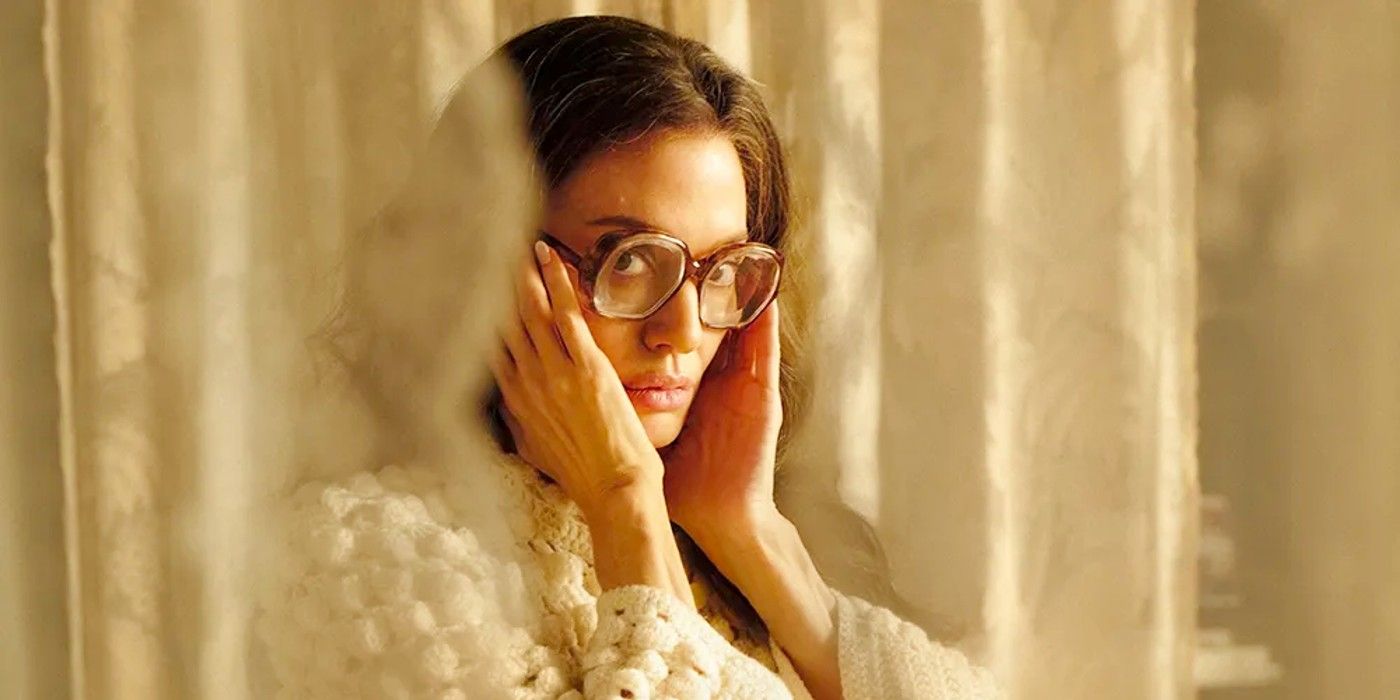Maria makes its intentions clear early. In September 1977, legendary opera singer Maria Callas (Angelina Jolie) is in her final days, and her grasp on reality is tenuous at best. She rearranges the world with herself at the center, though where once entire crowds were subject to her whims, now there remain only her loyal butler (Pierfrancesco Favino) and maid (Alba Rohrwacher). They worry over her declining health. By abusing her medication, she hallucinates entire conversations. She detests doctors, who feel compelled to disrupt her with their facts.
But Jolie’s Callas isn’t Norma Desmond; director Pablo Larraín isn’t out to make her an object of horror or pity. Callas, we learn, had much of her reality forced upon her. At this point in her life, she is taking control, and Maria practically cedes itself to her. She conjures up a filmmaker (Kodi Smit-McPhee), named for her hallucinatory drug, who interviews her about her life, and her visions take over our experience. Reality may intrude, often quite rudely, but this movie is Maria’s. The story of her we see is the story she’s telling about, and to, herself.
Maria Is Filled With Strong & Interesting Creative Choices
And the singing scenes are easy standouts
The result was mixed, and in a way that poses a conundrum for me as a critic. There is so much to admire in the way that it’s crafted, and intellectually, I found it full of interesting, thoughtful choices. The metanarrative device is skillfully deployed, as are Maria’s hallucinations. There’s no attempt to pull the rug out from under the audience. While there’s some fun in seeing how and when reality is distorted, when it isn’t is just as important. The way people outside Maria’s inner circle choose to interact with her can be both funny and cutting.
Even if I would enjoy an evening talking through the finer points of Larraín’s choices, I can’t deny I am in no hurry to revisit to them.
Often, the film is in some middle-ground, as Maria slips through time whenever Jolie’s protagonist is drawn away from the present moment, whether by memory, dream, or something in between. These scenes are beautifully composed with a cleverly malleable visual palette, sharpening the contrast. The effect of this is strongest when Callas sings. Her professional days are long behind her, but she wants to recover her voice and goes about testing it. As Maria sings, she is snapped back to when she sang the song before.

Related
10 Best Biopic Movies Of All Time
The biopic genre is one of the hardest to master, meaning that the greatest stand out above the rest for their detailed & skilled portrayals.
The film sets up a divide: Jolie sings as Maria, a shadow of her former self, while real recordings are used for La Callas, the soprano in her prime. We receive La Callas’ full power and glamor in sudden bursts, and they drive home the truth that Maria cannot fully keep out. We can hear Maria’s desperation just as well as we can see it pooling behind Jolie’s eyes.
For All Its Artfulness, Maria Left Me Cold
There’s plenty to admire in Maria, and in Jolie’s performance, but my connection to certain scenes shouldn’t be mistaken for my being emotionally engrossed. In fact, I typically felt kept at a distance. The style formed a barrier that I could only penetrate in moments. That’s not always a problem – some movies play better to the head than the heart, and are no worse for it. But this film is so confident in its own artfulness that it was hard to feel content with just admiration.
Therein lies my difficulty. I have no doubt that others will have a different experience with Maria and find themselves completely swept away by it, and with everything else it has going for it, I’d be remiss not to recommend it. But I can only do so halfheartedly. Even if I would enjoy an evening talking through the finer points of Larraín’s choices, I can’t deny I am in no hurry to revisit them.
Maria premiered at the Venice Film Festival. The film is 124 minutes long and not yet rated.


